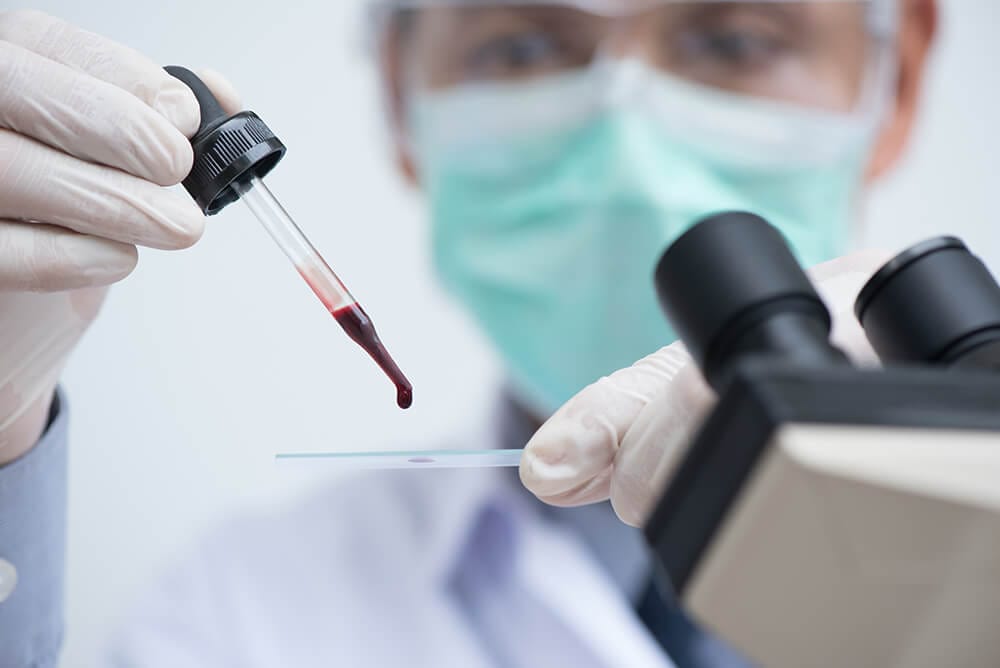
Type Of Blood Tests You Must Routinely Go Through
Overview of blood tests
One of the most important tests that doctors suggest in most cases for overall health diagnosis are the blood tests. There are different types of blood profile tests, namely, complete blood count (CBC), blood chemistry or basic metabolic test, blood enzyme test, lipoprotein test, blood clotting, and bone marrow tests. People who have diabetes or cholesterol are recommended to have regular blood tests. Many times, doctors suggest blood tests for a lab analysis of blood cells count in the body or to check the presence of any microorganisms in blood. In blood tests, a sample of your blood is collected by a healthcare provider from your vein located in the arm. In most cases, blood samples can be given at any time. However, you might be asked to not have anything in the morning before giving your blood sample.
Why should you get routine blood tests done?
Blood tests are common for routine checkups. Here are some of the most significant reasons why you should get routine blood tests in 3-6 months.
-
- Check functioning of organs:- One of the most important benefits of getting blood routine tests is that it helps check how the various body organs like liver, kidney and heart are functioning.
- Diagnosing chronic diseases at an early stage:- Routine blood tests are also beneficial for early diagnosis of blood infections or chronic diseases like diabetes, cancer, coronary heart disease, and HIV.
- Check efficacy of treatment:- If you are on medication for a health disorder, routine blood tests will help determine whether a particular medicine is working for you.
- Diagnose disorders:- Routine blood tests also help diagnose autoimmune disorders or bleeding or clotting disorders.
- Diagnose anemia:- Routine blood tests will check your hemoglobin levels and help in diagnosis of anemia at an early stage.
Basic metabolic test
Basic metabolic panel test or blood chemistry test is done to check eight different types of substances in the blood- glucose, calcium, blood urea nitrogen, creatinine, calcium, sodium, potassium, chloride, and carbon dioxide. The main purpose of a basic metabolic type of blood test is to check the body’s metabolism and its chemical balance. This test is beneficial in checking proper functioning of the kidney, acid and base balance, and electrolyte component in the body. It diagnoses the following conditions:
-
- Diabetes:- The blood metabolic panel test checks the amount of glucose in the blood. High levels of glucose can pose a risk of diabetes.
- Nerve and muscles:- Calcium test helps us know how strong our muscles are and if there is a risk of arthritis or osteoporosis.
- Kidney functioning:- The blood urea, nitrogen and creatinine help us to confirm if the kidneys are functioning properly.
Complete blood count test
A complete blood count (CBC) test is done to check the count of red blood cells, white blood cells and platelets in the body. It helps determine the complete balance of all the blood cells. Here is a list of blood tests that are included in CBC.
-
- Red blood cells:- Erythrocytes or red blood cells are responsible for transferring oxygen to all the body tissues. In the CBC test, the number of red blood cells, their structure, hemoglobin, blood volume, and the percentage of newly formed red blood cells in the body are checked.
- White blood cells:- Leukocytes or the white blood cells are responsible for fighting infections in the body. The recommended count of white blood cells is necessary for a good immunity. There are five different type of white blood cells – neutrophils (the largest number of white cells that protect the body from infections), lymphocytes (found in the lymph nodes, these fight bacteria present in the blood), monocytes (these help in fighting infections), and eosinophils and basophils (these protect the body from allergens).
- Platelets:- Thrombocytes or blood platelets are essential for blood clotting and in preventing excess loss of blood from the body.
Lipid panel test
Lipid means the fat or cholesterol present in the blood. The lipid panel test is done to check the amount of cholesterol and other fats in the blood. The lipids or triglycerides are essential for the body as they are an important source of energy. However, excess amount of lipids in the blood can lead to risks like blockage of arteries, which, in turn, increases the risk of coronary heart disease. A lipid panel test comprises the following different types of tests:
-
- Total cholesterol
- LDL or the bad cholesterol in blood
- HDL or the good cholesterol in blood
- Triglycerides
The lipid panel test is done to check the risk of cardiovascular heart diseases. It is also called lipid profile, cholesterol panel, and coronary risk panel test.
Comprehensive metabolic panel test
Comprehensive metabolic panel test is the blood test name for an overall diagnosis of the body’s metabolism and to check the functioning of kidney and liver. This test is done to examine 14 different types of substances in the blood-
-
- Albumin, a liver protein (common range – 3.5 to 5.4 grams per deciliter (g/dL)
- Alanine aminotransferase (ALT) (common range- 4 to 36 IU/L)
- Aspartate aminotransferase (AST) (common range- 8 to 33 U/L)
- Alkaline phosphatase (ALP) (common range- 20 to 130 U/L)
- Blood urea nitrogen (BUN) (common range- 6 to 20 mg/dL)
- Carbon dioxide, an electrolyte (common range- 23 to 29 mEq/L )
- Potassium, an electrolyte (common range- 3.7 to 5.2 mEq/L)
- Sodium, an electrolyte (common range- 135 to 145 mEq/L)
- Chloride, an electrolyte (common range- 96 to 106 mEq/L)
- Calcium (common range- 8.5 to 10.2 mg/dL
- Creatinine (common range- 0.6 to 1.3 mg/dL)
- Glucose (common range- 70 to 100 mg/dL)
- Total bilirubin (common range- 0.1 to 1.2 mg/dL)
- Total protein (common range- 6.0 to 8.3 g/dL)
The purpose of getting a comprehensive metabolic panel test is to check the fluid balance and the amount of electrolytes in the body.
Coagulation panel test
The coagulation panel test is done to check the amount of proteins in the body that are responsible for homeostasis or the body’s natural ability to clot blood after an injury or bleeding. Your doctor might suggest a coagulation panel test to confirm bleeding disorder or if you are experiencing symptoms like heavy bleeding, easy bruising or swelling, and frequent blood clots.
Other blood tests
In addition to the above, here are a few other types of blood tests that a doctor might suggest in specific situations.
-
- Thyroid panel– This blood test is done to check the proper functioning of the thyroid glands. Triiodothyronine (T3), Thyroxine (T4), and Thyroid-stimulating hormone (TSH) hormones are checked in thyroid panel tests.
- DHEA-sulfate serum test– This test is done to check the levels of dehydroepiandrosterone (DHEA) hormone in the blood which is responsible for issues like excess body hair growth and PCOS in women.
- C-reactive protein test– This test is done to check the levels of C-reactive protein in the blood. High levels of this protein indicate inflammation in the body and pose risks like diabetes, autoimmune diseases, or cancer.
How often should routine blood tests be done?
In case you do not have any symptoms, routine blood tests can be done once a year. However, if you have a serious health condition or chronic diseases like diabetes, hypertension, heart, kidney and liver problems, routine blood tests should be done once in 3-6 months for precautions.
Blood testing procedure
The blood testing procedure is simple. You can go to a lab to give your blood sample or call a lab to arrange for a home collection of blood samples. A phlebotomist or lab technician will clean an area on your arm from where blood will be taken with a cotton and use a syringe and needle to take blood from a vein. It will be stored safely in a lab container. You can tell the lab technician about the tests your doctor has recommended. The blood tests report usually comes within a day or two.
How to Read Blood Test Reports?
You can give your blood test report to your doctor for better diagnosis. However, you can also check your blood test report by yourself. You need to see the recommended range for the blood cells, proteins or enzymes to check whether it matches the level in your blood. This way, you will be able to examine if you have a normal blood test report. In most cases, lab doctors provide a hint of an extremely low or high level of any substance in your blood.
Risks associated with blood tests
It is safe to get a blood test. However, in rare cases, there may be a few risks associated with the different blood tests.
-
- If a dirty or infected needle is used to take blood samples, it can cause blood infection, swelling, or diseases.
- A slight drop of blood is normal after a blood sample is taken. However, in rare cases, some people might experience excessive bleeding after giving blood samples.
- Some people might even experience dizziness after giving blood samples for blood tests.
- You might also get bruising or blood clotting at the place from where the sample is taken.
Conclusion
Blood tests are done to diagnose health conditions. However, many people also get routine blood tests done once a year. It helps in early diagnosis of underlying diseases like cancer, diabetes, anemia, or heart and kidney problems. The most common types of blood tests include complete blood count, lipid profile, and basic metabolic test. Other blood tests include blood enzyme test, creatinine, rheumatoid factor test, and blood test for genetic studies.
FAQs
Should I eat anything before the blood test?
There are no specific restrictions on eating anything before a blood test. However, if your doctor has suggested a fasting blood test, you should not have anything 4-5 hours before the test.
Why are blood tests important during pregnancy?
Pregnant women are recommended blood tests during their first trimester, mostly during the first prenatal visit. The blood test is done to confirm their Rh factor to avoid development of antibodies which might be dangerous for the fetus. Blood tests are also important to diagnose the risk of anemia, HIV, hepatitis B, chicken pox and cystic fibrosis during pregnancy.
What cancers can be detected by blood tests?
Blood tests can be done to diagnose blood cancer, ovarian cancer, prostate cancer, thyroid cancer, liver cancer, testicular cancer, and colon cancer.















